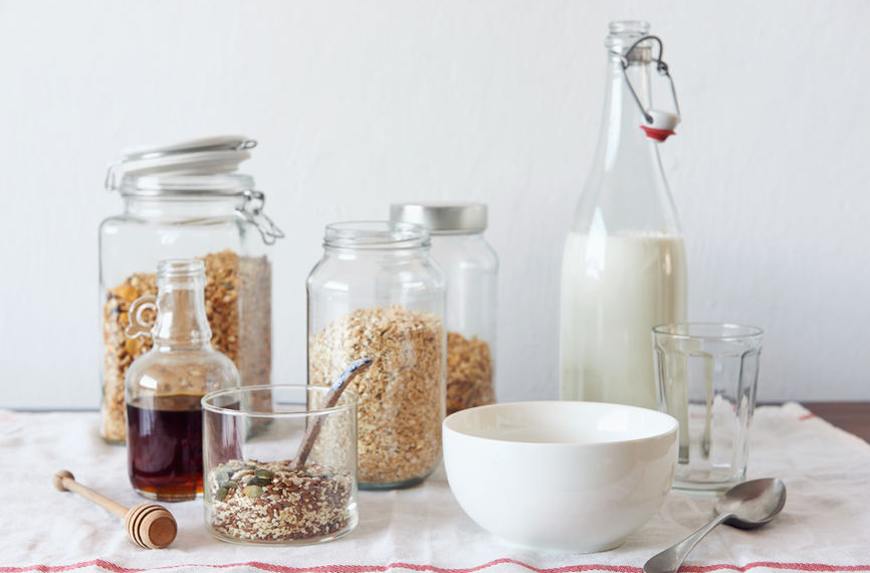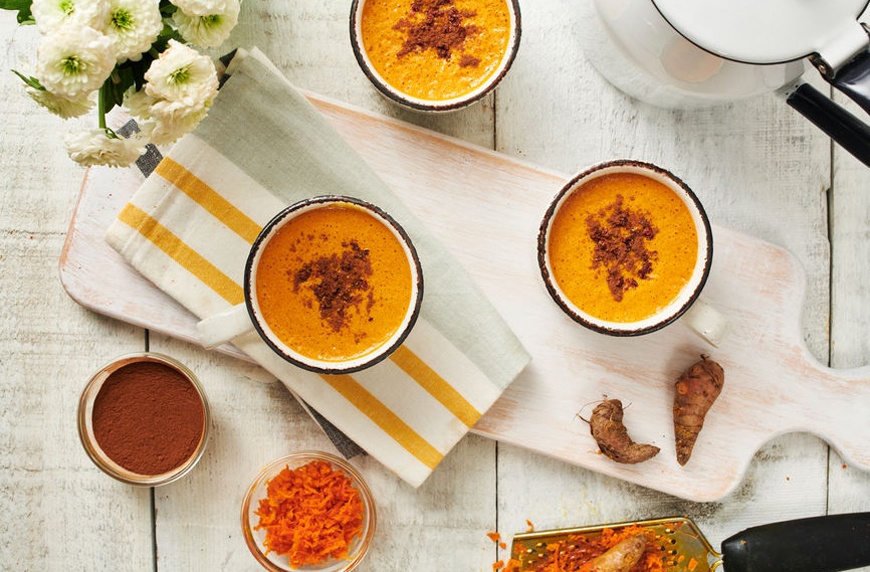5 Inflammatory Pantry Staples to Ditch—and the Healthier Alternatives to Choose Instead
Maybe you’ve heard, as some experts believe, that inflammation is the root of most illness. Indeed, it’s a phenomenon that’s been linked to a laundry list of issues, from cardiovascular disease and cancer to acne, digestive distress, depression, and autoimmune disorders like arthritis. “It shows up in people in many different ways,” says health coach Jenny Carr, author of Peace Of Cake: The Secret To An Anti-Inflammatory Diet.
So what is inflammation, exactly? According to Carr, it's the body's response when it comes into contact with something it perceives as foreign or dangerous—essentially, the immune system wages a low-level attack on the intruder. The good news is that while there’s no magic supplement or pill to quell chronic inflammation, there are lots of lifestyle shifts that can play a role in taming it. Sleep, stress management, proper hydration, exercise, and avoiding environmental toxins are just a few, but Carr believes diet sits at the top of the list. “Of all the things that play a role in inflammation, we have the most control over our food intake. You can seriously eat your way to reduced inflammation,” she says.

{{post.sponsorText}}
Her approach: Remove the most inflammatory foods from your grocery list and replace them with alternatives that aren't as likely to stress out your bod. Here, she shares a few switcheroos that everyone should make when transitioning to anti-inflammatory eating. Soon enough, you probably won't even notice the difference between your old favorites and their replacements.
Keep reading for five easy food swaps to make when you're adopting an anti-inflammatory diet.

Trade cow-derived dairy for products made from goat or sheep milk (or plants)
Dairy products can potentially jack up insulin levels and mess with hormones, and they’re also a common allergen— which means they can trigger inflammatory reactions from digestive issues to hives and eczema, explains Carr. But in her opinion, products sourced from cows are the worst offenders.
“The reason I specify cow’s milk is that it contains a specific protein called [A1] casein, which may increase inflammation,” says Carr. But not all animal proteins are created equal. “The protein molecule is [different] in goat and sheep dairy options, which hasn’t been shown to be as inflammatory” she explains.
Oh, and if you usually opt for nut, soy, or rice milks instead of dairy, keep this in mind: “Sure, some of these alt-milks taste great, but check the labels because they normally have a lot of sugar and fillers in them,” Carr warns. MALK and Califia Farms are her two recommendations for both purity and taste.
Consider embracing the gluten-free label
For many people, eating gluten on an anti-inflammatory diet is like riding your bike without a helmet: a no-no. “Gluten and wheat contain large, hard-to-digest proteins,” says Carr. If you’re at all sensitive to it—and especially if you have Celiac disease—consuming gluten in food or booze form can cause inflammation to flare up.
That's why Carr believes some of us can benefit from switching to gluten-free alternatives. “If you’re cooking at home, almond flour and coconut flour are the best substitutes for wheat flour, in my opinion," Carr says. "But there are so many other types of flour that you can try when replacing wheat in a recipe—even potato flour, yam flour, or cassava flour. But most of these aren’t a direct swap, so you’ll have to play around with the ratio [in the recipe].”
And you can always nosh on yummy gluten-free grains like overnight oats, quinoa pasta, or “anything else that says gluten-free and isn’t ultra-processed,” suggests Carr.

Replace processed sugar with natural sweeteners
No surprise: You’ll need to reduce your processed sugar intake. “The tricky thing about this is that there are over 50 names for processed sugar, like beet sugar, apple juice concentrate, and rice sugar,” says Carr. Her approved sweeteners include pure maple syrup, raw honey, raw agave, liquid stevia, and unrefined coconut sugar.
Not only should you replace the raw sugars themselves, but it's also important to check the labels of packaged foods, as not-so-healthy sugars can pop up in some surprising places. And if you’ve heard that fruit should be limited because of its high sugar content, Carr says not to worry. “Berries, green apples, peaches, avocados, and so many other fruits actually fight inflammation, not cause it," she says. "A diet high in fruits and veggies is best.”
Take a peek at your cooking oils
If you typically reach for the canola oil when you're whipping up a stir-fry, Carr wants you to reconsider. “Vegetable oils and seed oils have often been heated, which changes them on a molecular level and makes them more inflammatory,” Carr explains. Plus, these oils are high in omega-6 fatty acids, which can be inflammatory in high doses.
Her favorite picks are cold-pressed, extra-virgin olive oil, coconut oil, and avocado oil… as long as they aren't heated at high temperatures. "That means if you typically use these oils to heat and cook your veggies, you’re not doing your body any favors,” she says. Opt for goat or sheep butter or ghee instead.

Rethink your happy-hour bev
“Alcohol is the number-one cause of inflammation in the body,” Carr believes. Minimizing your booze consumption will help to reduce inflammation right off the bat (especially if you replace it with something that Carr calls "food-as-medicine").
If you’ve gotten into a routine of a nightly cocktail, she suggests opting for just one glass of wine, which may have anti-inflammatory benefits. Or try replacing your sips with a golden turmeric latte or moringa tea, which can boost your body’s inflammation-reducing response. I'll cheers to that.
Want more? This anti-inflammatory food pyramid will help you figure out how to build the ultimate healthy diet. And these recipes, courtesy of Candice Kumai, provide some great inflammation-fighting inspo.
Loading More Posts...